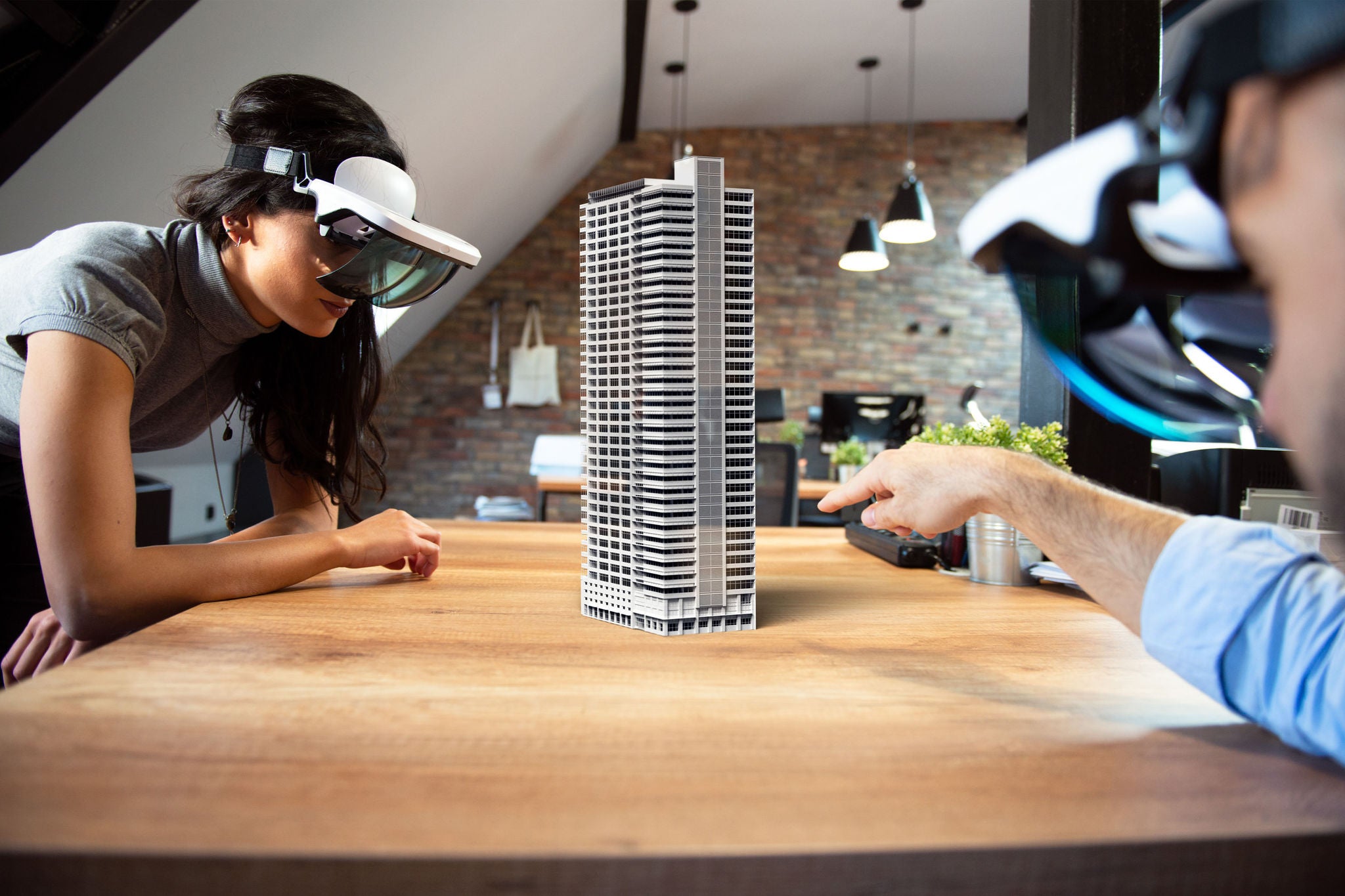EY refers to the global organization, and may refer to one or more, of the member firms of Ernst & Young Limited, each of which is a separate legal entity. Ernst & Young Limited is a Swiss company with registered seats in Switzerland providing services to clients in Switzerland.

Web 3.0 is redefining how we co-develop and co-design our built and virtual spaces, shaking up the reality of business and society alike.
In brief
- “Meta estate” is one direction for the future of the construction and real estate (CRE) industry
- Web 3.0 will boost opportunities for architects, construction companies and related players alike
- Are you ready to embrace the new reality?
As the metaverse takes shape and begins to mirror and enhance all aspects of real life, industries are seeking ways to turn disruption into opportunity. Besides impacting consumer goods, entertainment and other sectors, the metaverse is also changing the face of the construction and real estate (CRE) space by transforming our understanding of co-development and co-design, spaces, businesses and societies.
Web 3.0 is supporting a shift from “read and write” to “limitless creativity and participation”, making the metaverse a truly transformative lever. And it’s set to be a lucrative transformation for organizations that get on board. According to Bloomberg, the global revenue opportunity in the metaverse is set to reach as much as $800 billion by 2024 alone. Innovative initiatives are booming across the metaverse and often involve players in the CRE value chain. Examples include city co-development and co-design, as we’ve seen in Singapore, or enhanced city development as initiated by the University of Pretoria. In addition, we observe a trend toward co-development and co-design based on building information modelling (BIM) and digital twin in a more immersive way, but also through the trade of virtual land and CRE assets such as architectural designs and real houses using non-fungible tokens (NFTs). The areas where we see the most impact are:
While these opportunities are clearly very promising, they are also associated with various challenges, especially as many companies are exploring uncharted territories. The journey to success starts with having the right strategic direction, focus and priorities, followed by building and leveraging your own capabilities in combination with ecosystem partners. Finally, there has to be an appetite to jump into the unknown.
How do you build a roadmap to success?
Start with where to play. Consider how the metaverse impacts your current offering and where there’s potential for new opportunities. Decide on attractive growth pockets, by understanding the market dynamics, new consumer journeys and sweet spots against competing market offerings. Deciding where to play is about choosing the right bet for your specific business.
Continue with how to win. To develop a winning go-to-market strategy and business model for the metaverse, you need to understand the new dynamics, winning practices and actionable journeys. For most organizations, entering the metaverse means breaking new ground and you will need to find new ways to engage with customers. This brings us to the next question: what capabilities are needed? Which of these do you already have in house, and where can you upskill? How can you leverage your network and who are the right collaboration partners to complement your position in the metaverse ecosystem?
So, are you ready to jump in and make your first move? The CRE sector – like many others – has already started to embrace the new opportunities offered by the metaverse. Early adopters stand to benefit first, and fastest.
Summary
In the best sense of Amara’s law, we tend to overestimate the impact of technology in the short-term and underestimate the effect in the long run. The metaverse will have a massive impact on CRE by redefining ecosystems and the way players operate within them. We at EY-Parthenon have already supported companies with their metaverse strategies and would be happy to share our insights to accompany you on your journey.
Related articles
How will you seize real opportunities in tomorrow’s virtual world?
As the corporate world embraces the metaverse, it’s time to explore the potential for players in all sectors.
How taxes on cryptocurrencies and digital assets will soon take shape
Digital assets, such as cryptocurrencies, are creating opportunities and challenges for investors, service providers and jurisdictions alike.





